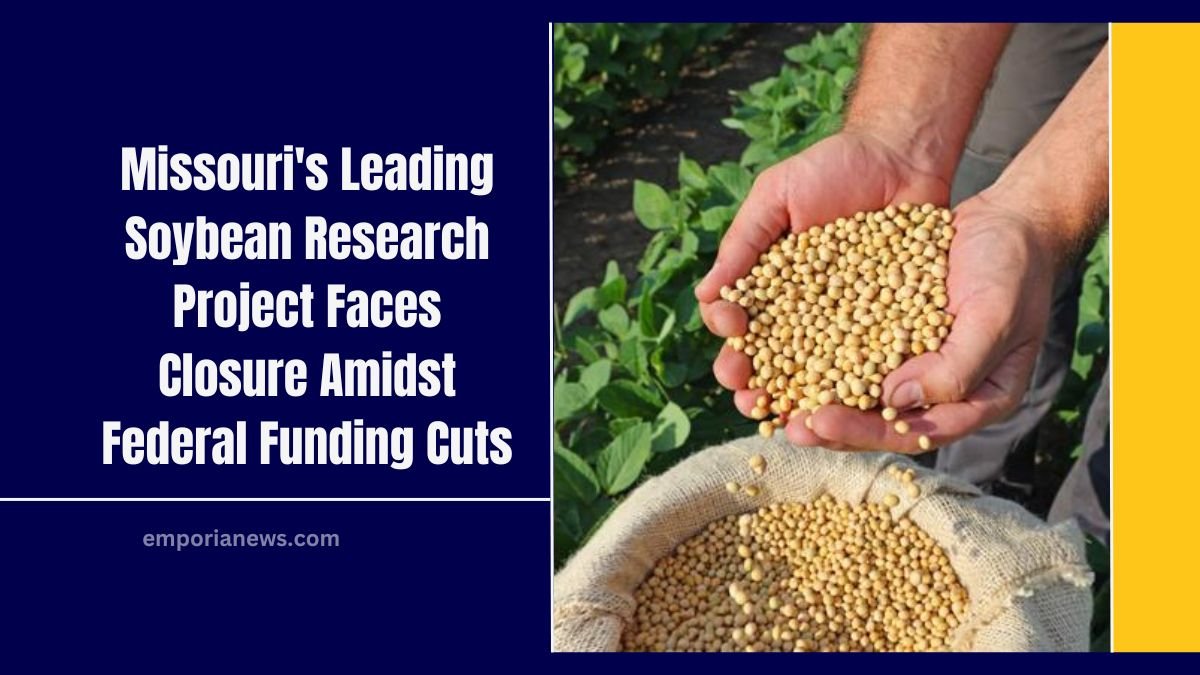The Soybean Innovation Lab, a pivotal research initiative collaborating with the University of Missouri, is slated to cease operations on April 15, 2025, following the Trump administration’s decision to halt funding to the U.S. Agency for International Development (USAID).
This development threatens to impede advancements in soybean research, with significant repercussions for Missouri’s agriculture and the global soybean industry.
Background of the Soybean Innovation Lab
Established in 2011 and based at the University of Illinois Urbana-Champaign, the Soybean Innovation Lab was designed to equip researchers and organizations with essential resources to foster soybean development.
The lab comprises over 100 technical soybean experts from 24 countries, representing a diverse array of institutions. Since 2013, the University of Missouri (MU) has been an active collaborator, focusing on various facets of soybean research.
Impact of USAID Funding Termination
The abrupt cessation of USAID funding has led to the impending shutdown of the Soybean Innovation Lab. This decision affects not only the lab’s personnel but also the broader network of 19 innovation labs across 17 states, including Missouri.
MU’s segment of the project had secured approximately $1.2 million in funding, averaging $150,000 annually, prior to this funding withdrawal.
Significance of Soybean Research in Missouri
In Missouri, soybeans are a cornerstone of the state’s agriculture, covering more than 5 million acres annually. As the state’s number one crop in both acreage and value, soybeans contribute over $2.5 billion in yearly on-farm value.
Research initiatives like the Soybean Innovation Lab have been instrumental in pioneering new technologies and methodologies to enhance soybean production and disease management.
Key Contributions and Research Focus
MU’s involvement in the lab has led to significant advancements, particularly in understanding and combating soybean diseases.
For instance, research on African soybean diseases has provided insights beneficial to Missouri farmers, aiding in the prevention of diseases such as soybean rust, which can devastate crops.
Additionally, the lab has focused on innovations in threshing technologies—the process of removing soybeans from their pods—and explored the nutritional applications of soybeans for both human consumption and livestock feed.
Broader Implications of the Shutdown
The termination of the Soybean Innovation Lab extends beyond Missouri’s borders. The lab’s director, Peter Goldsmith, emphasized that the funding disruption severs crucial relationships between research entities, businesses, and government sectors.
He noted that U.S. soybean farmers stand to lose a vital tool for expanding markets and establishing U.S. standards globally.
Moreover, local economies in emerging markets will miss out on the economic development opportunities that soybean cultivation and utilization provide.
| Aspect | Details |
|---|---|
| Established | 2011 |
| Base Location | University of Illinois Urbana-Champaign |
| Collaborating Institutions | Over 100 experts from 24 countries, including the University of Missouri |
| MU’s Funding Received | Approximately $1.2 million (about $150,000 annually) |
| Key Research Areas | Disease prevention (e.g., soybean rust), threshing technologies, nutritional applications |
| Impact of Shutdown | Loss of research advancements, market expansion tools, and economic development opportunities |
The impending closure of the Soybean Innovation Lab underscores the profound impact of federal funding decisions on agricultural research and development.
For Missouri, a state deeply intertwined with soybean cultivation, this development poses challenges to ongoing research efforts and the broader agricultural economy.
The situation highlights the critical importance of sustained support for research initiatives that drive innovation, economic growth, and global collaboration in the agricultural sector.




